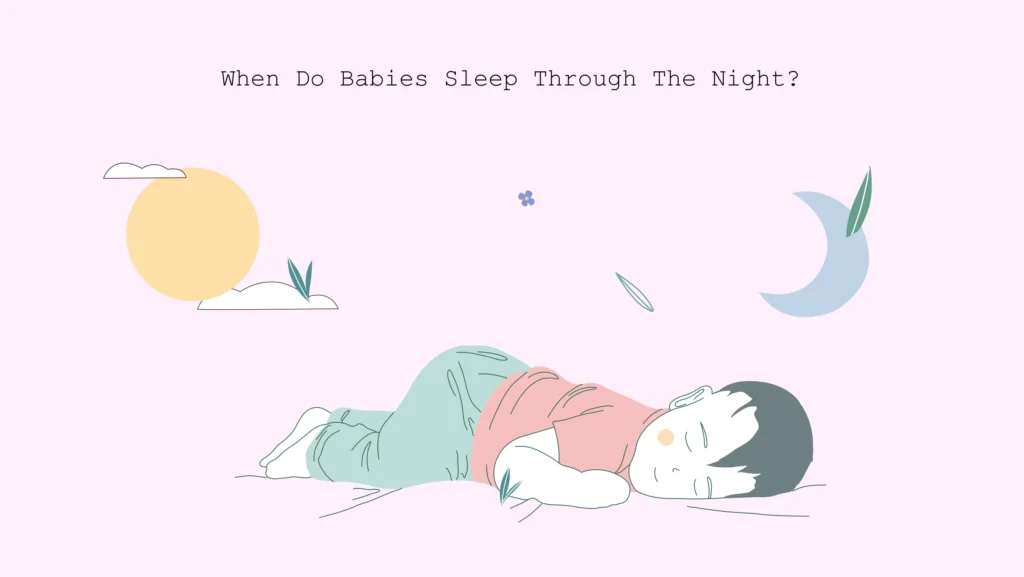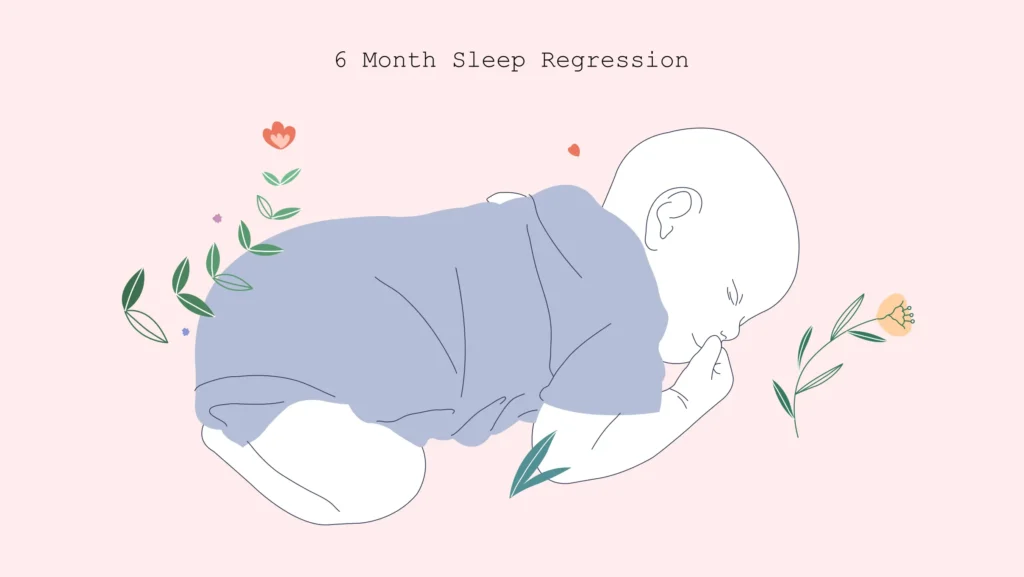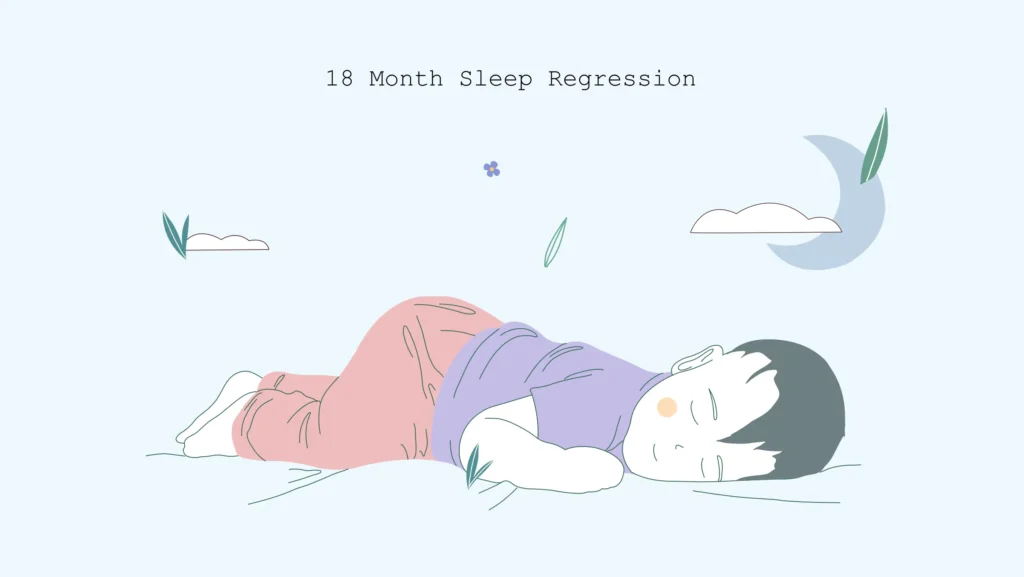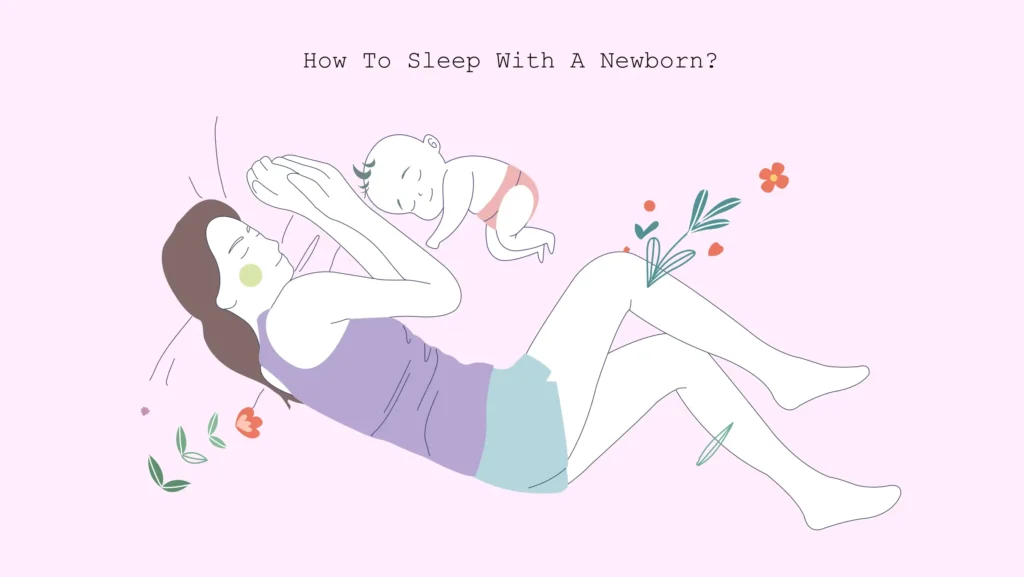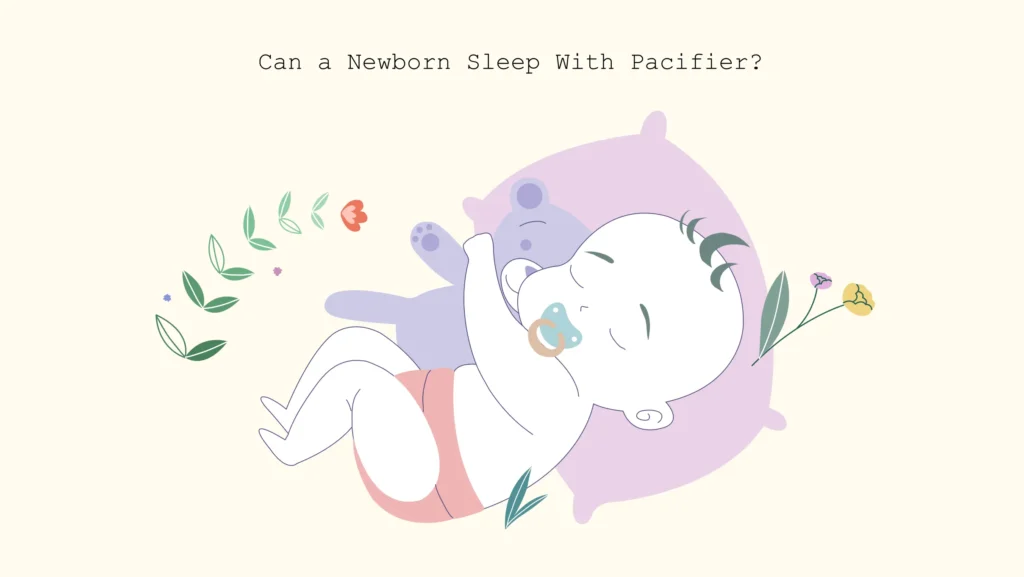Getting Your Baby to Sleep
Written by

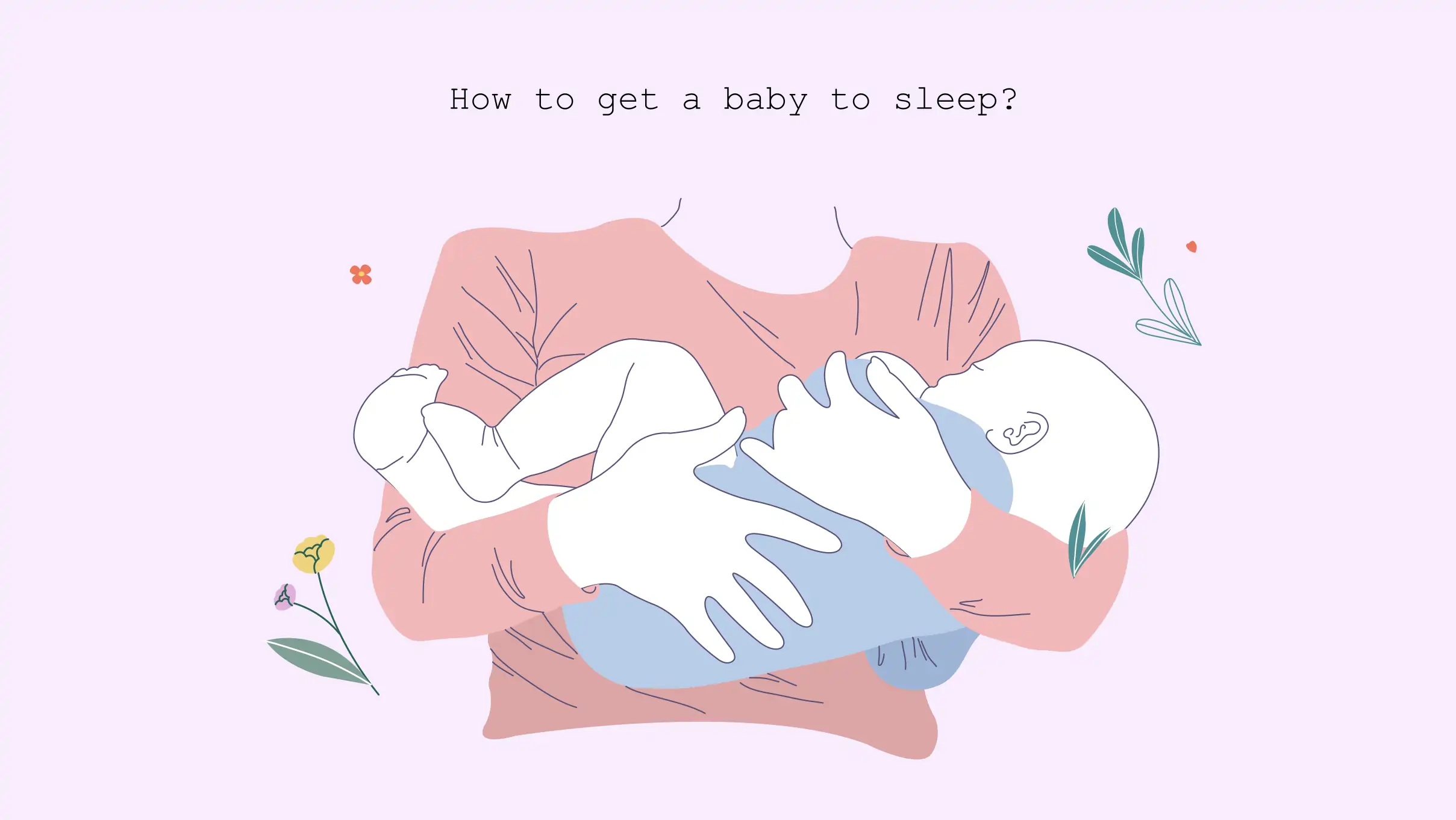
Babies don’t have a fixed sleep pattern, and as new parents, you probably already know. While some babies sleep in short bursts, others start sleeping for long periods from early on. But don’t worry, we are here to help you out. There are tips you can use to ensure your little one begins to enjoy a peaceful and long slumber. So read ahead to understand how to get a baby to sleep.
9 Ways to Help Your Baby Sleep Better
If your little one tosses and turns or acts fussy all night long, read how to get a fussy baby to sleep below.
1. Start a Routine
You must have heard about the importance of a sleep routine, even as an adult! But your tiny munchkin needs one too. A sleep routine helps your baby go to sleep at a consistent time. One of the ways it learns that it is now time to sleep is through little environmental cues. For instance, about 30 minutes before bed, you can always turn off or dim the lights. And this helps set up the baby’s internal clock, which works according to light and darkness.
You can also include other soothing activities, such as warm baths or story time. And be consistent with this routine, so your baby gets the hang of it.
2. Don’t Rely on Soothing Methods
We all tend to wake up in the middle of the night. But with infants, it happens more than usual. However, children still need to get used to their surroundings. Therefore, it won’t be easy for them to go back to sleep. So, here is a trick you can try. Make sure you put the young one down as soon as they feel drowsy. This is how to get a baby to sleep in a crib. But you can always sit by your baby’s side. Maybe sing them a lullaby!
3. Don’t Feed to Sleep
Infants usually fall asleep while feeding, which is pretty common. However, it can become a habit if your little one tends to dose off every time during a feed. They may start thinking that feeding is a pre-ritual to bed. Therefore, try to feed the baby earlier and not right before bed. This is how to get a baby to sleep in their own bed,
4. Stick to an Early Bedtime
Having a bedtime routine is vital for babies. When they are around 8 weeks old, melatonin begins playing its role. Melatonin is a sleep hormone that induces drowsiness in us. So, once the sun sets, melatonin starts doing its job. Therefore, stick to an early bedtime. Because if you keep them awake until late in the evening, your child can get overstimulated and become fussy. You can try putting your baby down around 6:30 PM to 7 PM. You can also look out for signs of drowsiness, yawning, being quiet, rubbing eyes, etc.
5. Eliminate Snacking
During the first 8 weeks, your little one may feed every 2 to 3 hours. However, they might be hungry if they demand a feed every hour. So, it is always best to maintain a log of what time you feed the kid. This also helps you compare. For instance, they might be snacking if they feed for 20 minutes at a stretch during the day and only 5 to 10 minutes at night. So, space their meals efficiently and avoid snacking.
6. Take Naps Seriously
When we adults take longer naps, our nighttime slumber may become disrupted. But that’s not the case with children. You may think an overtired child may sleep easily. But that’s not true. A well-rested child will easily slip into a nighttime slumber without any fuss. Why? This is because the stress hormones become elevated in an overtired child. And even if they fall asleep, the stress hormones may wake them up again when they are in the lighter sleep stage. So, regular naps are necessary. This is how to get a baby to stop fighting sleep.
7. Set Napping Guidelines
It always feels like a great idea to let the little one sleep on your chest or in the car seat. However, they need at least one good nap. And if you are wondering how to get a baby to sleep in a bassinet, naps are the best time for them to get accustomed to it. The first nap is mentally stimulating and will decide how their entire day works. And the second one is physically restorative. So, one can be in the early afternoon and the other slightly later in the afternoon.
8. Let Your Baby Work It Out
How to get a baby to sleep without being held? Well, let them learn to work it out on their own. Don’t rush towards them after the first sound you hear. This will become a habit, and they will expect you to do that every time.
So, when the baby starts to fuss, just see for a minute or so if they can work it out on their own. If they are still fussy, go to them and do the least invasive thing, such as shush them from afar or pat them. And even if that doesn’t work, the last resort is to help them get back to sleep. This soothing ladder technique helps in the long run as babies will learn to go to bed on their own.
9. Stop Overthinking Sleep
When you are running on sleepless nights, there are chances that you overload yourself with information on how to get a baby to sleep at night or how to get a teething baby to sleep. But the more information you consume, the more confused you will get. Stick to a consistent routine even if the baby won’t sleep immediately because soon they will get used to it. When you read and try something new every time, the consistency is lost, and you won’t be able to build a routine.
How much sleep is enough?
Sleep patterns vastly vary in children. Therefore, understanding how much sleep your little one needs will help you plan better.
Birth to 3 months
Infants up to 3 months sleep more than they are awake and need 8 to 18 hours of sleep every day. They wake up at night because they need to be fed every 2 or 3 hours, and being too hot or cold may also disrupt their sleep.
3 to 6 months
Here, night feeds become less, and your baby can sleep for longer. During this age, they tend to sleep for 14 to 15 hours during the day and at night.
6 to 12 months
During this age, night feeding may stop, and they tend to sleep up to 13 hours. Sometimes, teething discomfort can wake them up.
12 months
In 24 hours, they sleep for about 12 to 13 hours.
2 years
They usually sleep for 11 to 12 hours at night and 1 or 2 daytime naps.
3 to 4 years
They can sleep between 8 to 14 hours, and they may still need a nap.
Settling babies aged 0 to 6 months
During the first 6 months, you must instil the skill of going to sleep. So, when it is time to sleep, you can hold your baby until they snooze or try rocking, soothing them or patting their back. You can also place them in the crib and gently pat them or stroke them until they fall asleep. If the little one gets distressed, you can pick them up, cuddle until they are calm, and then put them back in. Make sure you stay with them until they fall asleep.
Settling a baby aged 6 to 12 months
Talking to your little one or cuddling can help them become calm. You can also try a hands-on technique where you move away from the crib or leave the room as soon as the baby calms down or falls asleep. If they become distressed, you may return and make comforting sounds or pat them. Even as your child grows older, a calm bedtime routine can help them go to bed easily.
When To See A Doctor?
If your child has sleep problems, has become too fussy, has been continuously crying, or looks distressed even after a regular routine, don’t hesitate to talk to your doctor, as a medical condition may be causing the distress.
Conclusion
Getting your baby to sleep at night can seem challenging at first. But they soon adjust to a routine and will learn to sleep independently. Try the above-mentioned techniques to help you out and fasten the process!
FAQs
Is it normal for babies to sleep with their mouths open?
No, they sleep with their mouth open only if they are experiencing some congestion. Therefore, you must take them to the doctor.
Why is my baby keeping his mouth open?
Keeping the mouth open may signify that your little one cannot breathe through the nose due to a blockage. Therefore, speak with your doctor.
Why do babies make an O shape with their mouths?
Babies make an O shape with mouths to show excitement as they are ready for playtime.
Is it normal for babies to mouth breathe?
No, it is not normal for babies to mouth breathe. It can be a sign of congestion.
people like this article
Written by



